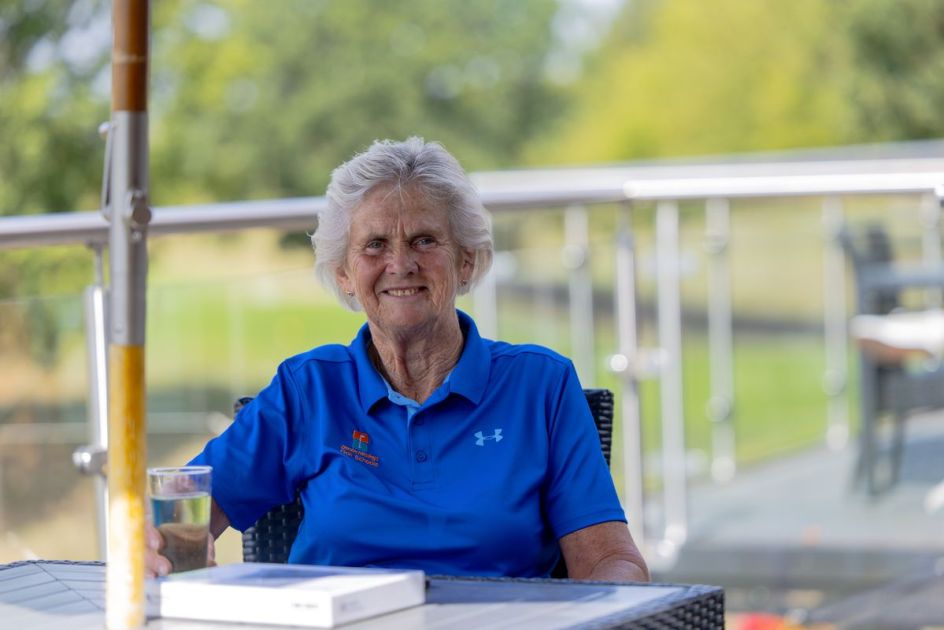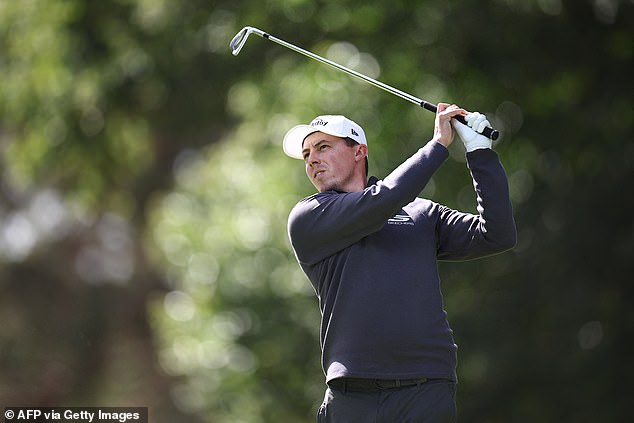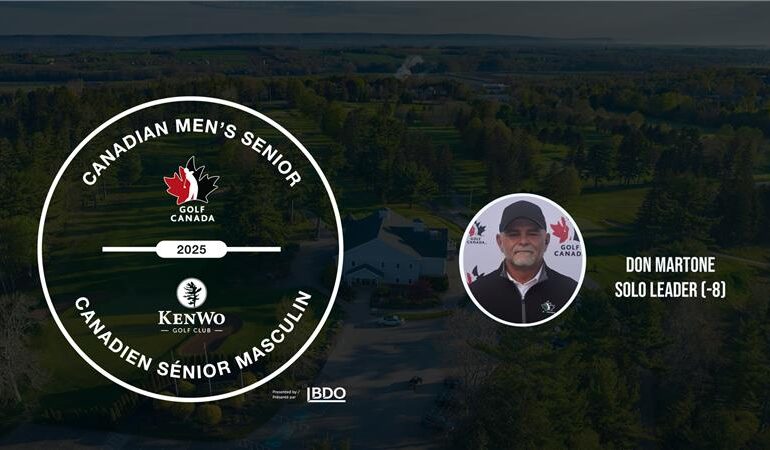The recently minted Master Coach is just the 66th PGA Member to have been awarded the designation. Here, Denise Hastings shares her pride at the award and reflects on her career to date
To receive PGA Master status, you have to be something very special. The official wording says that the honour is “awarded to those that have developed an outstanding reputation through their exceptional contribution to golf, identifying them as role models and ambassadors for The PGA and its Members”.
Denise Hastings has achieved all that and more.
Down to earth, humble, funny and highly knowledgeable, Hastings has been teaching the game since 1988, having previously been one of the founders of the Ladies European Tour.
Originally from Liverpool, she now teaches at Bedfordshire Golf Club, and her enthusiasm for the game and to improve further as a coach remains as strong today as it was back when she began.
When did you begin your teaching career, and what was the process to qualify as a PGA Professional at that time?
I came off the tour in October ‘87, and I started working for Vivien Saunders at Abbotsley Golf Club in Cambridge. That’s where my teaching days started.
We didn’t do our training at The Belfry, we did it at Lilleshall. There were a lot of girls who had come off the tour and they did a fast track for us. It was a three-year course, like they do now, but nowhere near as intense, and we did it in six weeks. It was really a crash course. They would ask you to do whipping or change a shaft, and you would think they were having a laugh as I did not have a clue.
But, fortunately, I had Fellow Professional John Laws, who I worked alongside at Abbotsley. He was really good and he helped me with club repairs, and I somehow passed with distinction.
Can you remember giving your first lesson as a PGA Professional?
Yes, it was as Abbotsley when I was working for Viv. The first lesson was with a family of four, first with the kids and then the parents.
I just copied the route Viv took, and it worked. I watched her do a lesson with the daughter and she basically said, ‘just copy that, work on those things to start with’, and that’s all I did.
At that point I hadn’t opened the PGA bible on how to teach, I knew how to play, and I had my ideas on things but then I just basically did what Viv did.
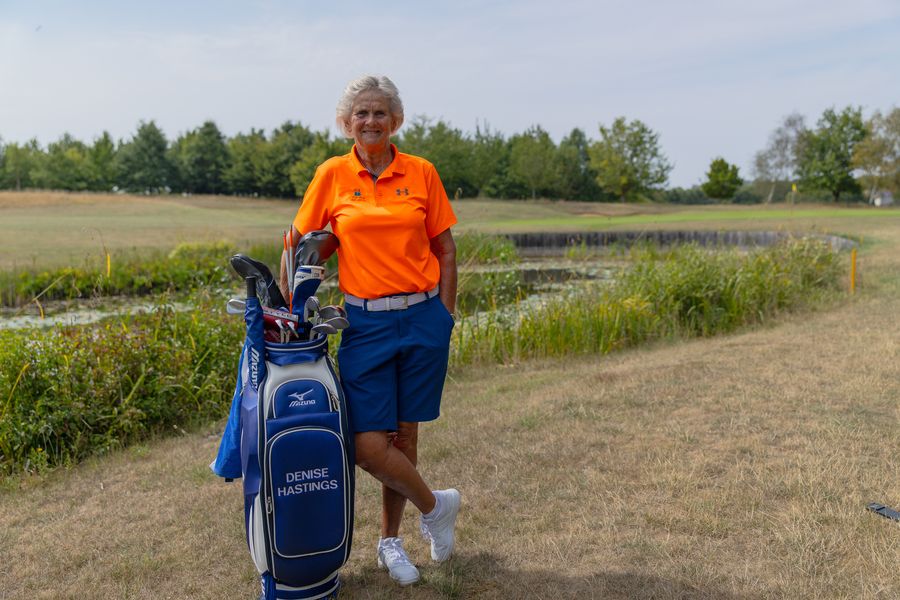
What were Viv’s qualities as a coach, and how did she inspire you?
Viv was incredible at teaching and getting people understanding, plus she had the Midas touch in making money. She was just very good with people and getting them to improve.
I worked with her on the golf schools, and I swear, for 18 months, I watched every clinic that she did. I mimicked what she did and then I began to understand more and improved as a coach.
As a mentor, she was awesome. She was unbelievably good at getting people to understand things simply.
From there, I just wanted to improve my knowledge and be the best that I could be. I wasn’t the best player on tour at all so I knew I would have to work hard to be the best coach that I could be. There wasn’t so much CPD then but there were things that you could go to and where you could watch other pros teach, and that was always something that I loved.
What has stuck with you from those early days and helped with your development?
I remember going to a couple of days with John Jacobs, and he would talk through how he improved his students.
Then The PGA did their first big teaching conference in around 1981 – it was three days at The Belfry, and that just blew my mind. After that I just wanted to learn as much as I can. I’ve been to seminars, and I would think, ‘I don’t really like this’, but there was always some nugget that you could take away. A lot of guys don’t understand that there is always something that can help you. I’ve done CPD ever since it started – I’ve always wanted to understand more about what goes on with the body, the swing, the gym work and understanding how to explain things in different ways.
What is the best advice you could give an aspiring PGA Pro in terms of their coaching?
Sometimes the student won’t understand what you say so you should be able to give them two or three different ways to understand a point. I remember having a lesson when I was on tour, and he expected me to understand all the technical jargon of the golf swing, and I didn’t have a clue. I didn’t know what he was talking about plus I did not have the guts to ask him why he wanted me to do that and what the improvement would be.
I hit it so poorly for about three months and I then thought, ‘if I’m ever going to teach, I’m not going to talk to people in golf lingo’. So they would go away understanding exactly what we were doing and what they needed to work on. Coaching is trying to make it simple and give the player the best information. If you’re teaching a really good player, that’s different to teaching a beginner, so you’ve got to monitor your language to the person in front of you.
“I don’t talk to people in golf lingo. They always go away understanding exactly what we are doing and what they need to work on. Coaching is trying to make it simple and give the player the best information.
– Denise Hastings, PGA Master Coach
How do you find the time and balance in your schedule to improve as a coach?
You’ve got to make ‘you time’. Also, do things away from golf. I go running and I call that ‘me time’. Watch other pros coach. When I first came off tour, I knew nothing about teaching, so I didn’t play much golf at all for a year. I wanted to know and try to understand as much as I could.
Then I just carried on being nosey and being inquisitive about how things work. I’ve been lucky enough to watch a lot of good pros teach and picked up stuff from them, and I’ve worked at things like the Open Swingzone for 20 years. There you’re talking to different golf pros and seeing things in different ways, plus you’re mixing with some of the best coaches in The PGA. If your lesson’s late, you’ll be watching the guy on the next bay, so every day’s a school day.
How did you put together your assessment to become a Master coach?
It has been in the making for a few years.
It’s like a giant CV of what you’ve done and how you’ve done it, and a good friend of mine, Angela Harkness, was a fantastic help in putting it together. I was also lucky enough to get a lot of guidance from Fiona Champness at The PGA.
A couple of funny things happened in the research for my Excel. Firstly, I saw a post on Facebook, and a guy who I grew up with said that my photo was hanging up in a pub! It was a picture of a 13-year-old me with a caption explaining that I was the only girl who took on 96 boys in the Tiny Rimmer Junior Open.
Then Angela discovered, while doing some research, that a company had taken a picture (at the same junior competition) and they had only gone and made a jigsaw puzzle of me! Now, that really did make me laugh – how many golf professionals can say that?
My advice to anyone thinking of getting involved with the different designations is that there is no end of good people at The PGA who you can reach out to and who are more than willing to help. I really believe that. Never be scared to ask for help.
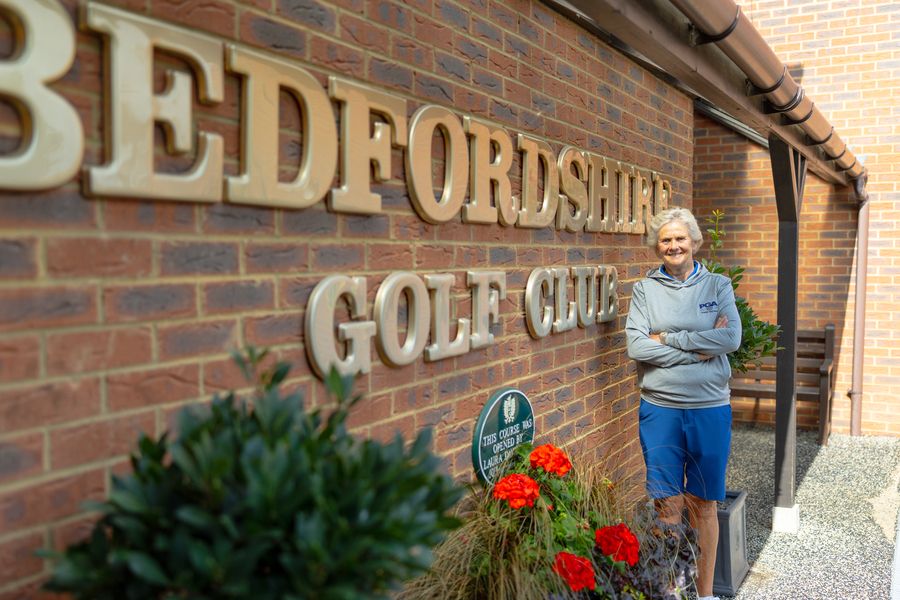
Denise Hastings on…
…what it means to become a Master Coach
A lot, I can’t put into words. When I found out, it was like, ‘this isn’t real’, and someone was pulling my leg. I’m unbelievably proud. It’s so special.
Will it change my day-to-day life? Probably not. I’m not the sort of person that can go around bragging and banging the tambourine, saying, ‘don’t you know who I am?’ I’m not like that at all. I was slightly embarrassed when people came into the shop to say well done but I’m really proud.
As a kid, playing golf at Bootle municipal, I so wanted to be good. My mum and dad gave up so much and supported my dream of wanting to be a professional golfer. They told me to keep dreaming and to work hard so, who would have thought that a council house kid from Bootle in Liverpool would ever play on the Ladies European Tour, least of all become a PGA Master Coach. It really is a dream come true.
…what benefits students most
The better knowledge that I’ve got, the better coach I’m going to be to get them to where they want to be, so they’re on the right pathway, as I am.
Sometimes it’s easier than others, but it’s like having a bit of a blueprint along the pathway. Sometimes you can go too fast with people, so I think the important thing is to have a real understanding of what the changes are so the ongoing progression can be successful. I’ve learned that through working with other pros and at CPD events.
…hiring staff
When I was the Head Pro at Kingsway there wasn’t APAL or Excel but, when I was employing someone, I asked the guys, ‘where do you see yourself in five years? And what are you going to do to achieve your goals and ambition’s?’ They said, ‘work hard and to go away to watch other pros work’. It’s very different in some ways with Excel but the question is still the same.
Now, there are better opportunities to improve themselves. If I was in the market for a new assistant and there was someone who has been a PGA Pro for six years and they weren’t on the first rung, I would want to ask why not.
It’s also important for the younger guys to keep up to date with what they’ve done and how they’ve done it. It took me ages to find some of my stuff and what I did in the past, and I would definitely recommend anyone to keep records of what they’re doing because it’s so easy to forget.

